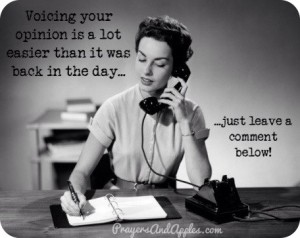
Patients are faced with a choice: Pop a pill? Or say a prayer and eat an apple?
What is anxiety?
When we experience or perceive challenges to our well-being that exceed our ability to cope, the psychological condition that results is called stress. According to the National Institute of Mental Health, anxiety is a normal reaction to stress. Generally defined, anxiety is a “feeling of worry, nervousness, or unease, typically about an imminent event or something with an uncertain outcome.” (It is important to distinguish between anxiety and anxiety disorders. Individuals suffering from the latter must meet criteria outlined in the Diagnostic and Statistical Manual of Mental Disorders, including experience of “excessive anxiety and worry” that lasts at least six months and symptoms that cause “clinically significant distress” and/or interfere with the individual’s ability to function.)
What causes anxiety?
What do you spend most of your time worrying about? Whether your answer is money, love, looks or just what other people think about you – every worry has the same thing in common: an uncertain outcome. Philosopher-theologian Soren Kierkegaard first popularized this notion in the 19th-century, writing that anxiety “is altogether different from fear and similar concepts that refer to something definite” (The Concept of Anxiety). In a separate journal entry, Kierkegaard observes:
Deep within every human being there still lives the anxiety over the possibility of being alone in the world, forgotten by God, overlooked among the millions and millions in this enormous household.”
(For an amazing article on Kierkegaard, see Gordon Marino’s New York Times piece, The Danish Doctor of Dread.)
But why do we spend so much time worrying about the future and being alone, when God tells us not to worry about the future and that we’ll never be alone?
Therefore do not worry about tomorrow, for tomorrow will worry about its own things. (Matthew 6:34)
And the Lord, He is the One who goes before you. He will be with you, He will not leave you nor forsake you; do not fear nor be dismayed. (Deuteronomy 31:8)
What does the Bible say about anxiety?
Even though the Bible tells us not to worry, anxiety often feels automatic. Factor in a fast-paced lifestyle and it might seem impossible to re-correct every anxious thought that crosses our minds. That’s why it’s important to reflect on God’s word when we do have quiet moments, so that His wisdom becomes instinctive – allowing us to override some of that “automatic” anxiety when things get busy. The following passages offer guidance, peace and reassurance:
Therefore I say to you, do not worry about your life, what you will eat or what you will drink; nor about your body, what you will put on. Is not life more than food and the body more than clothing? Look at the birds of the air, for they neither sow nor reap nor gather into barns; yet your heavenly Father feeds them. Are you not of more value than they? (Matthew 6:25-26)
Be anxious for nothing, but in everything by prayer and supplication, with thanksgiving, let your requests be made known to God; and the peace of God, which surpasses all understanding, will guard your hearts and minds through Christ Jesus. (Philippians 4:6-7)
Cast your burden on the Lord, And He shall sustain you; He shall never permit the righteous to be moved. (Psalm 55:22)
Which of you by worrying can add one cubit to his stature? So why do you worry about clothing? Consider the lilies of the field, how they grow; they neither toil nor spin; and yet I say to you that even Solomon in all his glory was not arrayed like one of these. Now if God so clothes the grass of the field, which today is, and tomorrow is thrown into the oven, will He not much more clothe you, O you of little faith? (Matthew 6:27-30)
Peace I leave with you, My peace I give to you; not as the world gives do I give to you. Let not your heart be troubled, neither let it be afraid. (John 14:27)
Fear not, for I am with you; Be not dismayed, for I am your God. I will strengthen you, Yes, I will help you, I will uphold you with My righteous right hand. (Isaiah 41:10)
Trust in the Lord with all your heart, And lean not on your own understanding. (Proverbs 3:5)
How do we treat anxiety? The debate:
Although the Bible offers plenty of advice on dealing with anxiety, many of us still struggle – creating an invaluable market for major pharmaceutical companies. Referencing Kierkegaard’s philosophical musings on dread, Gordon was only half-joking when he asked, “Is there any doubt that were he alive today he would be supplied with a refillable prescription for Xanax?” With antidepressant use up 400% from 1988-1994 to 2005-2008, approximately one in ten Americans now takes the medication (National Center for Health Statistics) – causing reporters like Sharon Begly to ask: In the age of anxiety, are we all mentally ill?
Increasingly lost in this explosion of diagnoses is the crucial distinction between anxiety and anxiety disorders. According to the National Institute of Mental Health, anxiety itself “can actually be beneficial.” As sociologist Allan Horwitz explains in Begly’s article,
No human emotion is more basic than anxiety. Many forms of it simply should not be categorized as disorders, because they’re the result of the way people evolved thousands of years ago, rather than something going wrong.”
And yet, despite the evolutionary purpose (and value) of anxiety, the prevalence of reported anxiety disorders has increased more than 1,200% since 1980. Critics of the current trend point to the DSM:
First, the DSM fails to recognize that anxiety is normal and even beneficial in many situations, so it conflates a properly functioning brain system with a pathology. Second, the DSM‘s description of anxiety is more about enforcing social norms than medicine. Finally, they say, anxiety is adaptive. Its brain circuitry was honed by evolution for a purpose. Only when that mechanism misfires should a person be diagnosed as mentally ill. (Begly)
This final argument epitomizes the Prayers and Apples philosophy and bears repeating:
Only when that [brain circuitry] mechanism misfires should a person be diagnosed as mentally ill.”
A (perhaps controversial) point to add to this debate is the remarkable correlation between mainstream society’s departure from traditional Christian values and the unprecedented rise of individuals’ inability to navigate said society without “excessive anxiety and worry.”
Conclusion
Anxiety is a normal reaction to stress that, in its most extreme form, can manifest itself as a psychological disorder – impairing daily function and causing clinical distress. The Bible offers a wealth of advice on dealing with anxiety, while an increasing number of physicians prescribe medication to address the issue. With huge pharmaceutical profits at stake, the debate over proper treatment has no end in sight – leaving readers to make their own decision: Pop a pill? Or say a prayer and eat an apple?
EDITOR’S NOTE: While pharmaceutical treatments aren’t appropriate for everyone, they may be necessary and/or helpful in certain cases – so be careful not to judge yourself or others:
Judge not, that you be not judged. (Matthew 7:1)
What are your thoughts?

References:
Artwork: Dona Gelsinger
Begley, S. (13 July 2012). In the age of anxiety, are we all mentally ill? Reutgers.
Butcher, J., Hooley, J., and Mineka, S. (2010). Abnormal Psychology (14th ed.). Stress and Physical and Mental Health. Boston: Allyn and Bacon.
Marino, G. (17 March 2012).The Danish Doctor of Dread. New York Times.
National Institute of Mental Health. Anxiety Disorders. Retrieved: 30 September 2012.


Love this! You’re right that anxiety feels automatic sometimes, and even though we know the Bible says not to worry, it’s still hard! Another problem I sometimes have is if I AM able to say “let’s just leave this to God,” I then worry that I sound apathetic about it to others. This happens a lot with money and my husband.
Such a tricky subject! Thanks for shedding some light on it!
Definitely really tricky! I know what you mean – sometimes I worry in circles because I start with, “Let’s just leave this up to God”… but then I get that little story about the rowboat stuck in my head (you know, where there’s a big flood and this one guy keeps denying help saying, ‘God will save me’ and then the flood gets really high and he cries out to God, ‘Why don’t you save me?’ and God goes, ‘I sent a rowboat, a helicopter and a rescue group – what else did you want?!’) – so then I start worrying, “Ok, wait – was that just my row boat? Am I supposed to stay still, or do something?” lol :) ..definitely tricky, but I think it’s important to talk about! :)
Jessica, you are right on time! In this evidenced based world we live in it’s easy to over look the creator of spirit, body and mind…especially over looking the Creator. You have no idea how much this post means to me. Thank you for following the leading to put your to do list on the to do list and write this post!
Thank you,
So, so glad you liked it! And thank you for reading and taking the time to comment! :) Xo